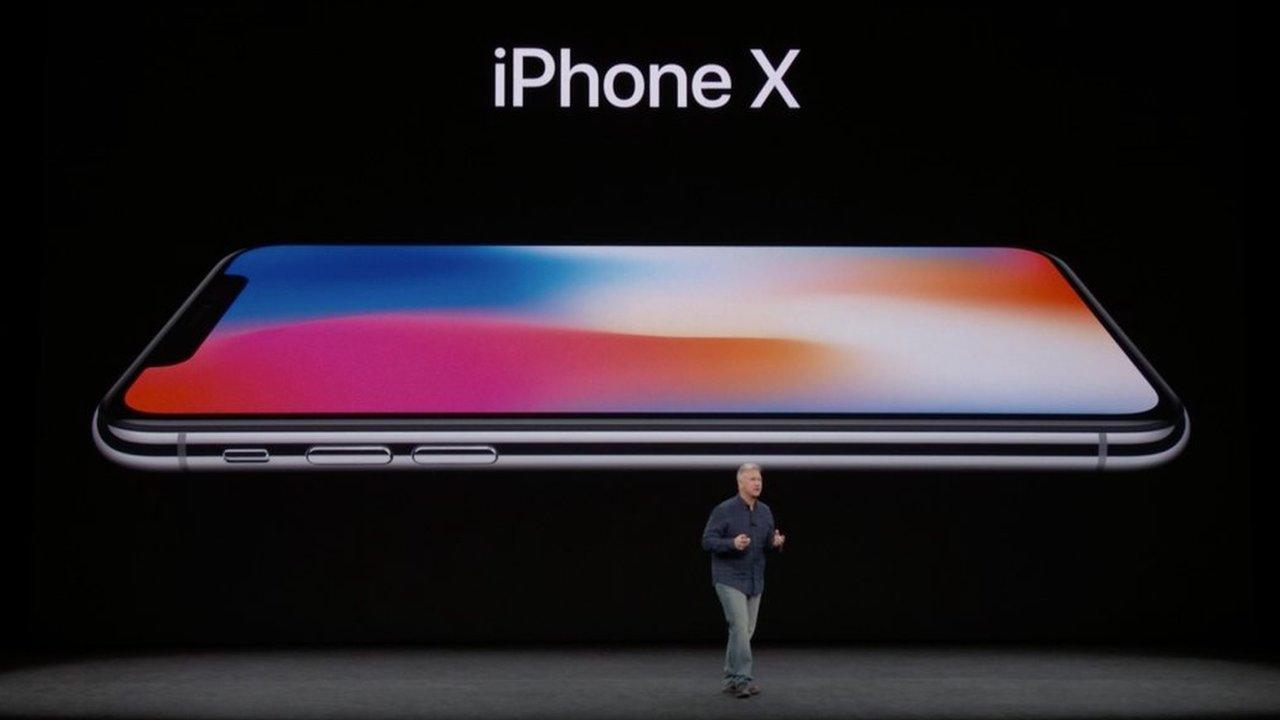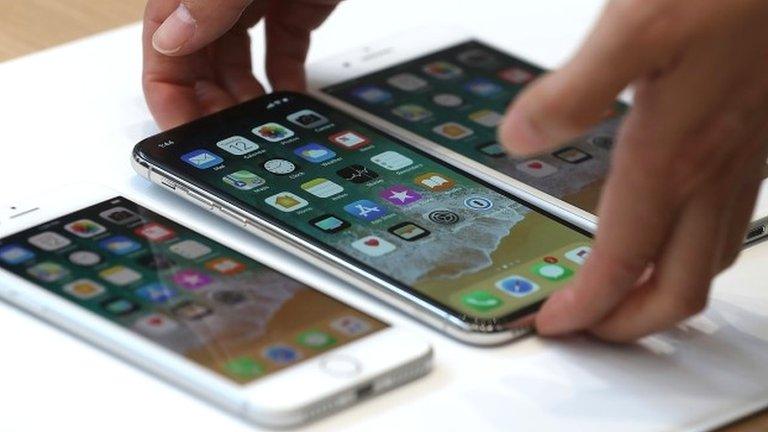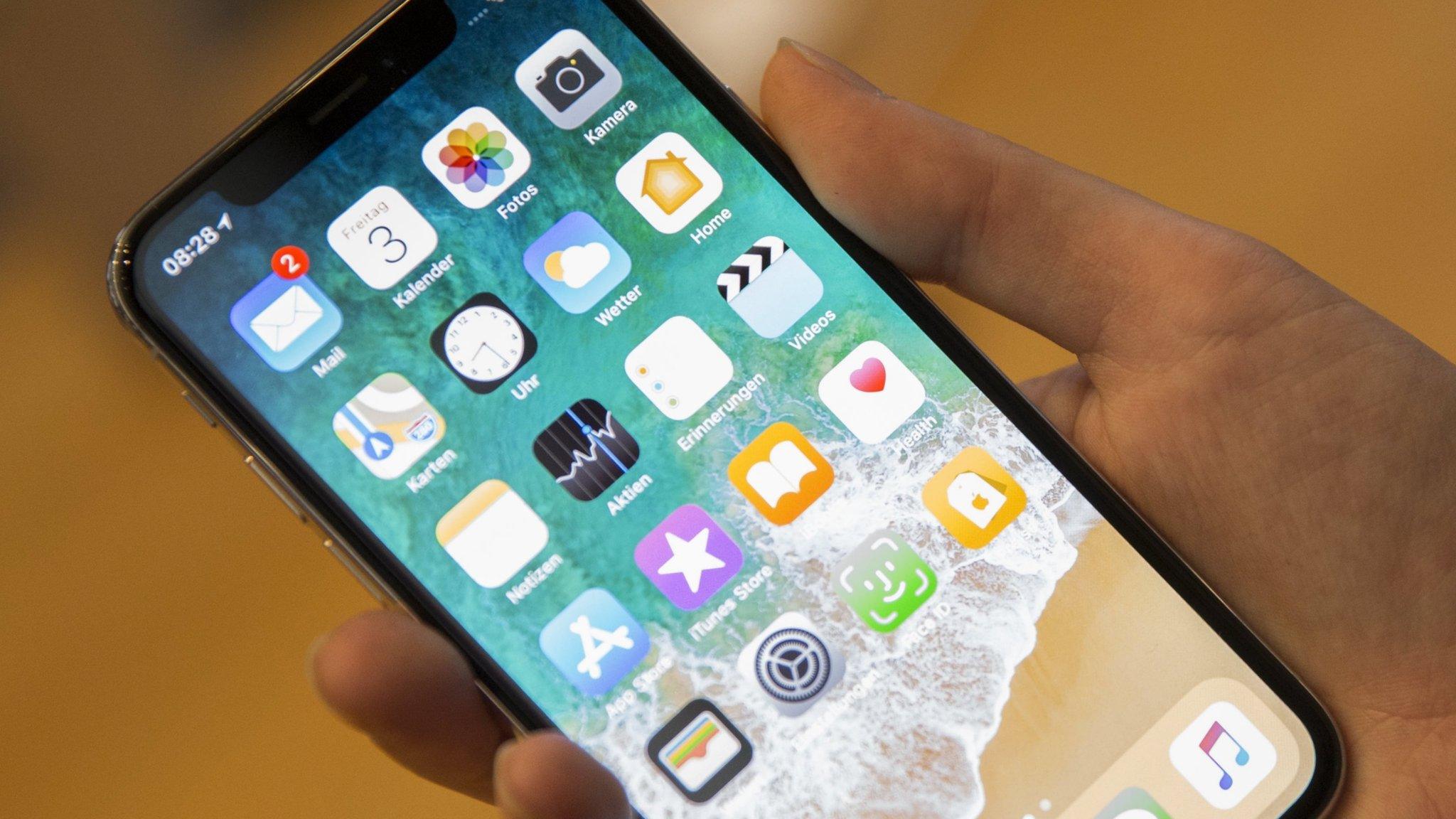Apple explains Face ID on-stage failure
- Published
WATCH: Apple's event in two minutes
Apple has explained why its new facial recognition feature failed to unlock a handset at an on-stage demo at the iPhone X's launch on Tuesday.
The company blamed the Face ID glitch on a lockout mechanism triggered by staff members moving the device ahead of its unveil. Yahoo News was first to report the details, external.
Apple's software chief dealt with the hiccup by moving on to a back-up device, which worked as intended.
But the hitch was widely reported.
"People were handling the device for [the] stage demo ahead of time and didn't realise Face ID was trying to authenticate their face," an unnamed company representative is quoted as saying, external by Yahoo's David Pogue.
"After failing a number of times, because they weren't Craig [Federighi], the iPhone did what it was designed to do, which was to require his passcode."
Craig Federighi's demo of the new feature did not go as planned
Apple later confirmed to the BBC that the quote was real.
At its launch event, the company had earlier described Face ID as being "effortless" to use and more accurate than its fingerprint-based Touch ID system.
The older authentication system is not available on the new premium handset because it lacks a fingerprint sensor.
So, despite the fact the incident lasted only about 10 seconds, out of a near two hour long presentation, it still has the potential to undermine confidence in the company's claims.
Apple has confirmed elsewhere that Face ID is disabled after just two unsuccessful attempts, external, unlike Touch ID, which requires a passcode to be manually typed in only after five failed tries.
Earlier theories of what had gone wrong included Mr Federighi's stage make-up interfering with the system, as he was seen to wipe his face before making his second attempt, and that the phone had been recently rebooted triggering the need for a typed code.
Seeking answers
Other issues concerning the new facial recognition system have also been raised, including whether it might make it easier for the authorities or thieves to force a user to unlock their handset and whether it will handle the hijab worn by some Muslim women, among other facewear.
The iPhone X is not due to go on sale until November, and journalists at the launch at the company's Cupertino, California headquarters were shown Face ID working in controlled circumstances.
On Wednesday, the Democrat senator Al Franken published a letter he had sent to Apple seeking more information.
"Substantial questions remain about how Face ID will impact iPhone users' privacy and security, and whether the technology will perform equally well on different groups of people," he wrote.
"To offer clarity to the millions of Americans who use your products, I ask that you provide more information on how the company has processed these issues internally, as well as any additional steps that it intends to take to protect its users."
Update 18 September 2017:
Apple has updated its Face ID developer notes, external to state that the system will be disabled after five failed authentication attempts rather than two, as previously stated.
- Published12 September 2017

- Published13 September 2017

- Published12 September 2017
